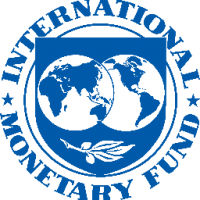This section of the site contains articles, white papers, reports and research studies, written by consultants, professional bodies, academics and asset managers, and all relating to European Pension Funds.
Prior to June 2017, Europe only served two types of pension schemes: government-backed or private-led instruments. Essentially, this gave Europeans the ability to pay contributions into their pension pot and build up a lump sum for future use. However, since then, the Pan-European Pension Product (PEPP) has emerged, a voluntary scheme which opened alternative ways in which to save money for the pension pot. PEPP became available across the spectrum of financial companies, banks, asset management firms, insurance, etc throughout Europe...
.
PEPP has established the legal foundation for pan-European personal pension products, and there may be implications for UK-based or UK-focused pension providers due to Brexit.
Just like any single nation evaluating and monitoring the sustainability of providing a state-based pension scheme, Europe (and European Union member nations) must consider the wider demographic and macroeconomic factors which can influence the susceptibility to succeeding or failing.
Pillar 1 [Defined Benefit] schemes would be more influenced by demographic factors than macroeconomic factors – given the nature of the scheme – than Pillars 2 & 3 (Defined Contribution), which would be affected by the latter.
Institutions for occupational retirement provisions (IORP), an EU directive (Directive 2003/41/EC), was created as a cross-border management function, serving a high level of protection to pensioners. IORP II was implemented in early 2019 and focuses on heightened governance of the pension schemes and greater communication with the members. Through this new change, a greater legal responsibility now falls on European pension funds to invest in long-term strategies in the interest of pension members.
EU legislation on pension governance is closely regulated by the European Insurance and Occupational Pensions Authority (EIOPA), a financial regulatory institution replacing the Committee of European Insurance and Occupational Pensions Supervisors (CEIOPS), an independent advisory arm to the European Commission (EC). The EC is the enforcement body of the EU in the pension space, promoting the interest of the EU by implementing policies and the EU fiscal budget.
As the pension universe expands through EU directives and PEPP instruments, greater transparency and enforcement of governance become necessary. The EC will commission the EIOPA to assess the current fiduciary duty of the pension fund industry as increasing pressure to define ESG risk moves into focus.








